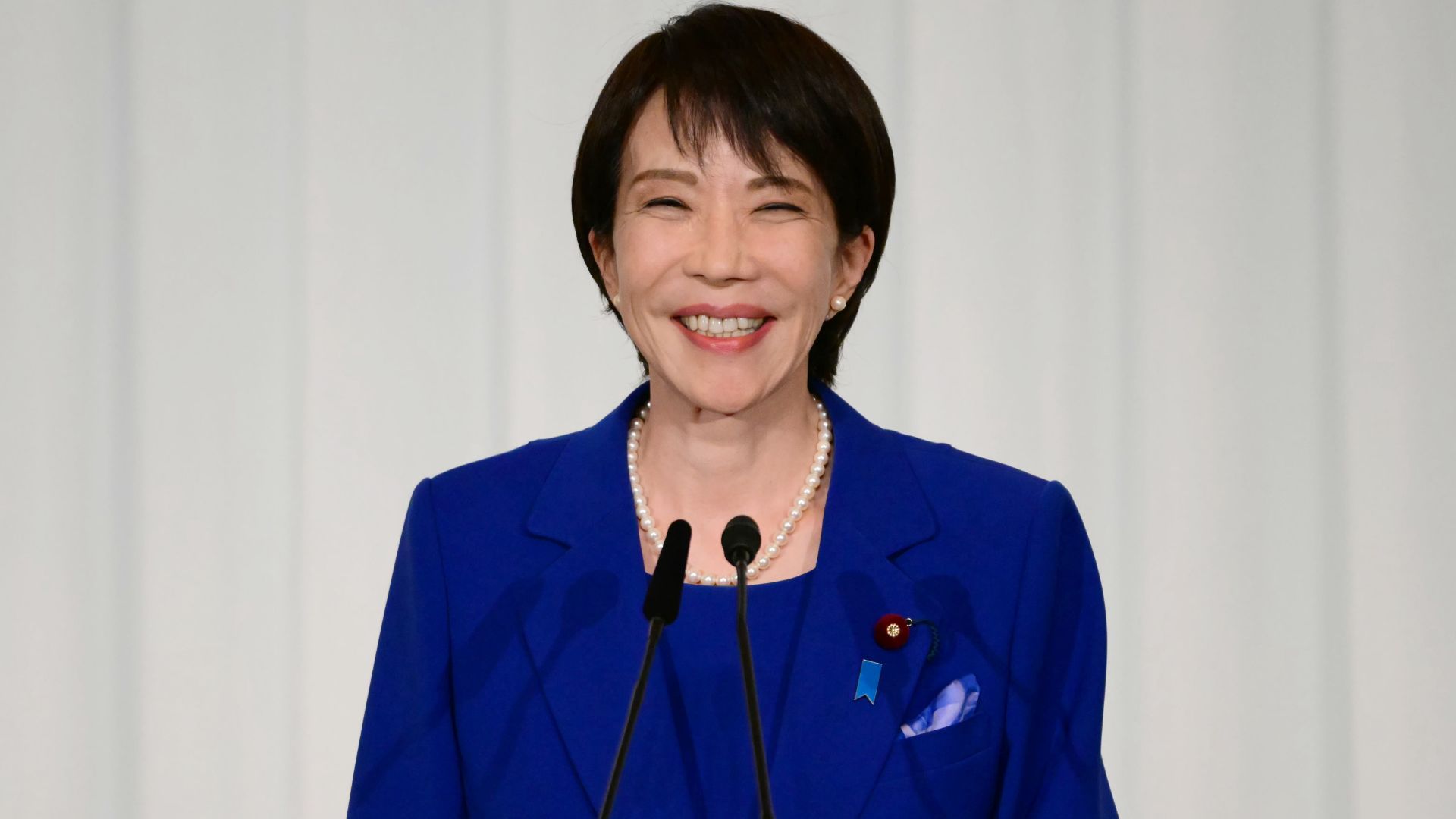Japan’s first female prime minister, Sanae Takaichi, faces a diplomatic storm as tensions between Tokyo and Beijing flare over Taiwan. What began as a cautious exchange of handshakes has quickly escalated into one of the sharpest confrontations between the two Asian powers in years.
Escalating friction between Tokyo and Beijing
Barely a month into her term, Japanese Prime Minister Sanae Takaichi finds herself at the center of a major international dispute. Only days after meeting Chinese President Xi Jinping, relations between Japan and China have deteriorated dramatically, fueled by harsh rhetoric and nationalist fervor. The immediate cause of the rift stems from Takaichi’s comments regarding Taiwan, which Beijing regards as a core national interest and an inseparable part of its territory.
During a parliamentary session on November 7, Takaichi stated that any potential Chinese assault on Taiwan—located a short distance from Japanese islands—would be considered “a situation threatening Japan’s survival.” Her words suggested that such an event could provoke a defensive military response from Tokyo. This shift marked a sharp departure from previous Japanese administrations, which had traditionally avoided implying direct military involvement in Taiwan’s defense.
Beijing responded with outrage, condemning Takaichi’s comments as a serious intrusion into China’s domestic matters. The reaction extended beyond mere diplomatic declarations. Xue Jian, China’s consul general in Osaka, posted on X (previously Twitter), stating, «The protruding dirty neck must be severed.» Tokyo criticized the swiftly removed post as «utterly unsuitable,» while Taiwan characterized it as an overt menace.
China’s Foreign Ministry defended Xue, asserting that his comments reflected a reaction to Japan’s “dangerous and erroneous” statements. Officials accused Tokyo of undermining China’s sovereignty and warned that the issue of Taiwan remains a non-negotiable red line.
The reverberations of «wolf warrior» diplomacy
The incident has brought back recollections of China’s «wolf warrior» diplomacy, an assertive foreign policy approach that rose to prominence in the early 2020s. During that period, Chinese diplomats frequently utilized social media platforms to directly challenge detractors, occasionally employing provocative language. While Beijing had recently attempted to moderate this strategy to restore confidence with Western countries, the current dispute suggests a potential reversion to that confrontational stance.
Within China, nationalist voices and state media outlets have amplified public outrage against Japan. The People’s Daily, the Communist Party’s flagship newspaper, described Takaichi as “reckless” and warned that “crossing the line on Taiwan will come with a price.” An account associated with China’s state broadcaster mocked her, asking, “Has her head been kicked by a donkey?” Meanwhile, Hu Xijin, a prominent commentator and former editor of the Global Times, escalated the rhetoric further, writing that China’s “battle blade for beheading invaders has been sharpened” and suggesting Japan would face destruction if it intervened in the Taiwan Strait.
Takaichi has since tried to downplay the situation, clarifying that her statements were hypothetical and not intended as a policy declaration. Yet her position remains precarious. Japan depends heavily on China as its largest trading partner, even as it grows increasingly wary of Beijing’s military expansion in the East and South China Seas. Balancing national security concerns with economic interdependence has become one of Takaichi’s greatest challenges.
A delicate diplomatic balancing act
Takaichi’s methodology mirrors her enduring conservative perspective on national security. As a protégé of the late former Prime Minister Shinzo Abe, she has championed a more robust military stance and enhanced collaboration with the United States and its regional partners. Initial declarations from her administration concerning Taiwan, alongside her engagement with the island’s delegates at the Asia-Pacific Economic Cooperation (APEC) summit, indicated a sustained progression in Japan’s move towards a more confident foreign policy.
During her meeting with Xi Jinping in South Korea in late October, Takaichi emphasized the importance of a “strategic, mutually beneficial relationship.” However, she also raised concerns about China’s military maneuvers near disputed islands in the East China Sea—territory claimed by both nations. That discussion, though seemingly cordial at the time, foreshadowed the deeper friction now unfolding.
The current diplomatic clash comes at a particularly sensitive moment. This year marks the 80th anniversary of the end of World War II—a conflict that continues to shape Chinese and Japanese national identities. Beijing commemorated the event with a massive military parade, showcasing its armed forces and reaffirming its historical narrative of resistance against Japanese aggression.
In the lead-up to the anniversary, Chinese officials accused Japan of minimizing its wartime atrocities, while state media released several films depicting Japanese soldiers’ brutality during the war, including dramatizations of the Nanjing Massacre. The Japanese embassy in Beijing even advised its citizens to speak discreetly in public, fearing potential hostility amid rising nationalist fervor.
History’s shadow over Taiwan
The deep-seated antagonism between these two countries predates the Second World War, being intricately linked to Taiwan’s own convoluted past. Having been a Japanese colony since its transfer from Imperial China in the late 1800s, Taiwan stayed under Japanese dominion until Tokyo’s surrender in 1945. Subsequently, the Nationalist government of China assumed authority over the island, only to withdraw there after their defeat by the Communists in the civil conflict of 1949.
Since that time, the Chinese Communist Party (CCP) has viewed Taiwan as a renegade territory slated for eventual reintegration. From Beijing’s standpoint, the end of World War II signified the island’s «emancipation» from Japanese rule—a story deeply embedded in the country’s political self-perception. Chinese authorities frequently reference this historical context to bolster their sovereignty assertions and legitimize their resistance to external interference in matters concerning Taiwan.
When asked about Takaichi’s remarks, Chen Binhua, the spokesperson for China’s Taiwan Affairs Office, invoked this common history, stating that Japan carries a «historical burden» for its colonial governance of Taiwan. He proclaimed that China had «reclaimed» the island eight decades prior and cautioned that any endeavor to impede reunification would encounter resolute opposition.
The unpredictable journey forward
The current diplomatic crisis highlights the enduring volatility of East Asian geopolitics. Japan’s growing security cooperation with the United States and its increased defense spending have already drawn Beijing’s scrutiny. Now, under Takaichi’s leadership, Tokyo appears willing to adopt a more outspoken stance on regional security, particularly regarding Taiwan’s stability.
For China, this matter goes beyond simple diplomacy; it delves into the core of national identity and sovereign rights. Consequently, even the mere hypothetical mention of Japanese military participation in Taiwan is viewed as an outright act of provocation.
While both governments may ultimately seek to de-escalate tensions, the incident underscores how fragile the balance remains between two of Asia’s most powerful nations. Each misstep risks reigniting old hostilities that never fully faded with time.
In this atmosphere of mistrust and historical resentment, every word carries weight. For Takaichi, whose tenure has barely begun, the challenge lies in navigating Japan’s role between deterrence and diplomacy—maintaining peace while standing firm on national interests. Whether she can achieve that balance without deepening the rift with China will likely define not only her leadership but also the trajectory of East Asian relations in the years to come.







